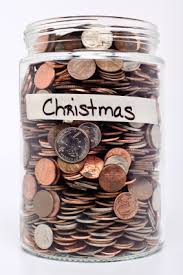Christmas is typically one of the most stressful events of the year. The expense of buying gifts, the pressure of last minute shopping, and the heightened expectations of family togetherness can all combine to undermine our best intentions. Some practical suggestions can help you reduce your ‘Christmas stress’.
BUDGETING FOR CHRISTMAS
For many of us, the Christmas aftermath includes massive credit card bills that can take months to clear. Christmas doesn’t have to be a financial headache if you plan ahead. Stress reduction strategies include:
- Work out a rough budget of expected Christmas costs as early as possible. This includes ‘hidden’ expenses such as food bills and overseas telephone charges.
- Calculate how much disposable income you have between now and Christmas. A certain percentage of this can be dedicated each week (or fortnight or month) to covering your expected Christmas costs. Don’t be discouraged if the amount seems small. If you save $5, $10, or $20 per week over a year, it can provide you with a hefty nest egg.
- If your nest egg isn’t enough to cover your estimated expenses, consider recalculating your Christmas budget to a more realistic amount.
- If you have trouble keeping your hands off your Christmas nest egg, consider opening a ‘Christmas Club’ account.
PRESENTS
If you have a large circle of extended family or friends to buy gifts for, it can be very costly. You might be able to reduce the stress and cost of Christmas for everyone if you suggest a change in the way your family and friends give presents. For example, you could suggest that your group:
Buy presents only for the children.
Have a Kris Kringle, where everyone draws a name out of a hat and buys a present only for that person.
Set a limit on the cost of presents for each person
CHRISTMAS SHOPPING
According to a recent study by Roy Morgan Research, around 60 per cent of Australians dislike Christmas shopping, just 20 per cent plan their shopping expeditions, and the majority of us (nearly 75 per cent) often come home without a single purchase for our efforts.
Stress reduction strategies for successful Christmas shopping include:
- Make a list of all the gifts you wish to buy before you go shopping. If you wait for inspiration to strike, you could be wandering aimlessly around the shopping centre for hours. Perhaps you could get to know the interests of family and friends to help you when choosing gifts (remember money is also a great gift as it allows people to choose what they want).
- Cross people off the list as you buy to avoid duplication
- Buy a few extras, such as chocolates, just in case you forget somebody or you have unexpected guests bearing gifts.
- If possible, do your Christmas shopping early – in the first week of December or even in November. Some well-organised people do their Christmas shopping gradually over the course of the year, starting with the post-Christmas sales.
- Buy your gifts by mail catalogue or over the Internet. Some companies will also gift-wrap and post your presents for a small additional fee.
THE CHRISTMAS LUNCH (OR DINNER)
Preparing a meal for family and friends can be enjoyable but tiring and stressful at the same time.
Some tips to reduce the stress of Christmas cooking include:
- If you are cooking lunch at home, delegate tasks. You don’t need to do everything yourself.
- Consider keeping it simple – for instance, you could always arrange for a ‘buffet’ lunch, where everybody brings a platter.
- Make a list of food and ingredients needed. Buy as many non-perishable food items as you can in advance – supermarkets on Christmas Eve are generally extremely busy.
- Write a Christmas Day timetable. For example, 11.30am – put turkey in the oven.
- You may need to order particular food items (such as turkeys) from your supermarket by a certain date. Check to avoid disappointment.
- Consider doing your food shopping online. The store will deliver your groceries to your door. (Keep in mind this option is more expensive than visiting the supermarket yourself.)
- Book well in advance if you plan to have lunch at a restaurant. Some restaurants may be fully booked for months before Christmas, so don’t wait till the last minute.
We hope these list could help you cope with your Holiday stress more or less… Feel free to leave us a comment in case you have any other tips you’d like to share!
All and all, Have a Merry Christmas and a Happy New Year everyone!





